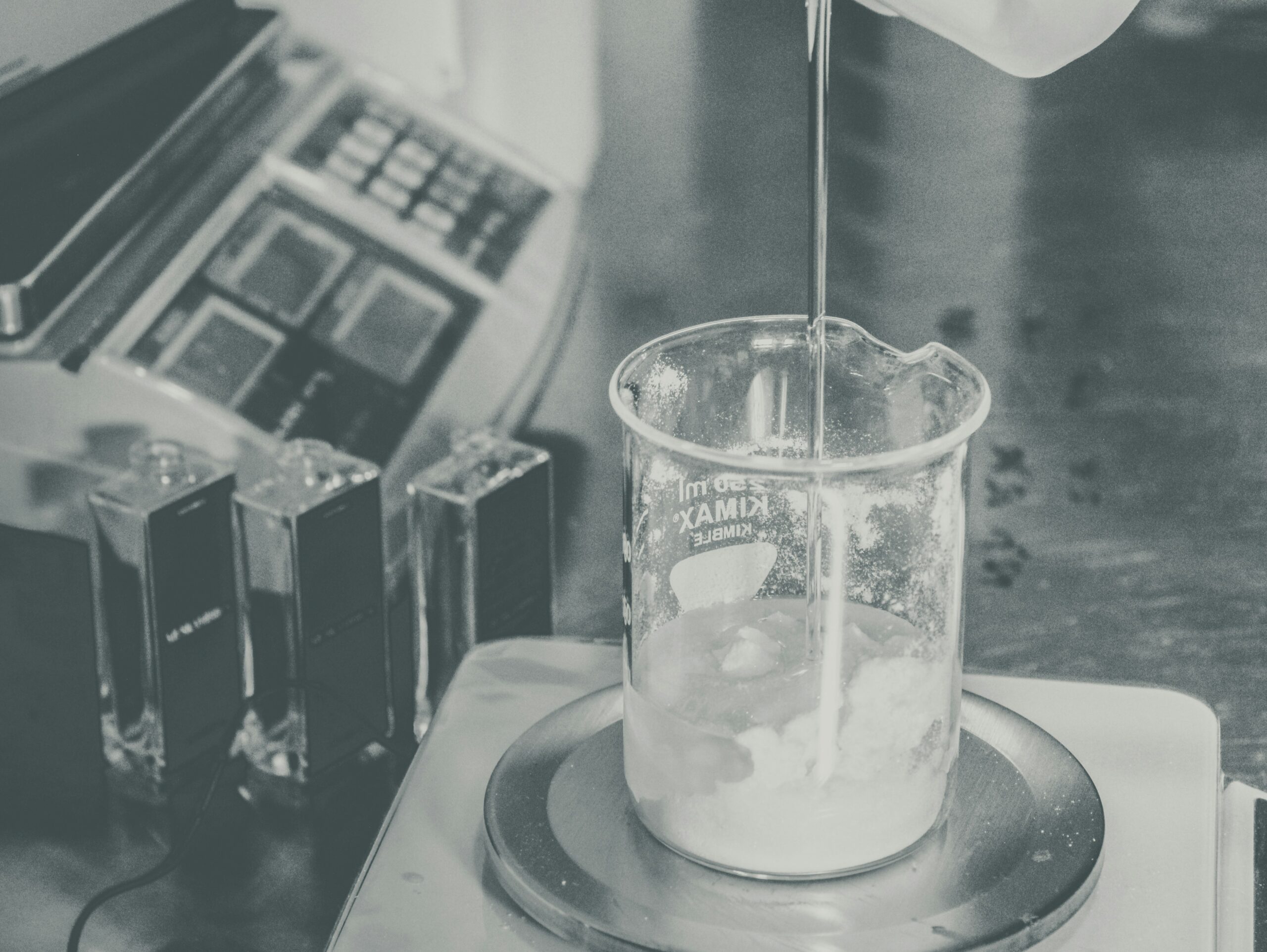
Introduction to Scent and Mood
The connection between scent and mood is a fascinating area of study that highlights the profound impact fragrances have on human emotions. Our sense of smell, or olfaction, is intricately linked to the brain’s limbic system, which is responsible for regulating emotions and memory. This direct connection means that specific scents can evoke memories and feelings, influencing our overall mood. For instance, the aroma of fresh lavender is often associated with calmness and relaxation, while citrus scents like lemon and orange can energize and uplift the spirit.
Research indicates that certain fragrances can create emotional responses that are not only immediate but also long-lasting. The reason behind this lies in how scents interact with the brain. When we inhale a fragrance, the olfactory receptors transmit signals to the brain, triggering a reaction. This is why the smell of cookies baking might transport someone back to their childhood home, bringing about feelings of comfort and nostalgia. Such associations make scent a powerful tool in various domains, including aromatherapy, where essential oils are used to manage stress and promote emotional well-being.
Moreover, the commercial world has taken advantage of the relationship between scent and consumer behavior. Brands often use specific fragrances in stores and advertisements to create an inviting atmosphere and evoke certain feelings. For example, the scent of vanilla is known to evoke feelings of warmth and familiarity, making it a popular choice in retail spaces to enhance the shopping experience.
Overall, the science behind scent and mood reveals that our emotional responses to fragrances are deeply rooted in both biological and psychological factors. Recognizing this connection can help individuals harness the power of scent to improve their mood, create desired atmospheres, and even influence personal experiences.
The Biology of Smell
The sense of smell, or olfaction, is a complex biological process that begins when odor molecules enter the nasal cavity. These molecules bind to olfactory receptors located in the olfactory epithelium, a specialized tissue within the nasal cavity. Humans possess approximately 400 types of olfactory receptors, which can detect a wide range of scents. When an odor molecule binds to these receptors, it triggers a cascade of chemical responses that results in the generation of electrical signals.
These electrical signals are transmitted via the olfactory nerve to the olfactory bulb, a neural structure situated at the base of the brain. The olfactory bulb processes the signals, sending the information to various regions of the brain, including the piriform cortex, which is responsible for identifying scents, and the amygdala and hippocampus, which play crucial roles in emotional responses and memory. This intricate network provides insight into why certain fragrances can evoke vivid memories or intense emotions, as the limbic system is closely intertwined with our perception of smells.
The limbic system acts as a bridge between the sensory inputs of fragrance and emotional reactions. For instance, the presence of certain scents can trigger the release of neurotransmitters such as dopamine or serotonin, which are chemicals responsible for feelings of pleasure and happiness. Moreover, the unique ability of scents to elicit memories offers a remarkable link between olfactory experiences and mental health outcomes. In therapeutic settings, harnessing the power of fragrances can be beneficial for managing stress, anxiety, and mood disorders.
Understanding the biology of smell elucidates the profound impact that fragrances can have on our mood and behavior. By recognizing the physiological mechanisms involved in scent perception, we gain a greater appreciation for the power of aromas in our everyday lives.
Historical Uses of Fragrance
Throughout human history, the use of fragrances has transcended mere personal enjoyment, marking significant cultural and societal practices across various civilizations. The ancient Egyptians, for instance, were pioneers in the art of perfumery, utilizing aromatic oils and incenses in religious rituals. These scents were integral to their spiritual practices, believed to facilitate communication with the divine and ward off evil spirits. Perfume was also an essential component in the mummification process, reflecting the profound intersection of fragrance, spirituality, and the afterlife.
In the Mediterranean, the Greeks and Romans incorporated fragrances into their daily lives, using scented oils for physical care and as a symbol of status. The Greeks admired the use of fragrances in their baths, associating aromatic oils with hygiene and social interaction. Roman citizens would don aromatic garlands as a sign of celebration, particularly during festive occasions. This underscores the social implications of scent, not only as a marking of personal identity but as a connector within community rituals.
Moving to the East, ancient Chinese and Indian cultures viewed fragrance as vital for medicinal remedies. In traditional Chinese medicine, scents derived from natural sources were regarded as having therapeutic properties that could influence one’s physical and emotional well-being. Similarly, Ayurvedic practices in India utilized fragrant herbs and essential oils to promote balance and health. This historical context illustrates that these cultures recognized the power of aromas as influential agents of emotion and mood regulation.
As societies evolved, so did the complexity of fragrance creation. The Middle Ages saw the development of structured distillation techniques, enhancing the extraction of essential oils. By the Renaissance, fragrances had become a refined art form embraced by the elite, reflecting sophisticated cultural tastes. Overall, the historical utilization of fragrances emphasizes their longstanding role in shaping human experiences, emotions, and societal interactions through the ages.
Fragrances and Emotional Response
Fragrances have a profound ability to influence our emotional states, drawing from a complex interplay of psychological and physiological mechanisms. Research suggests that certain scents are closely associated with particular feelings or moods, offering insights into how we can harness these aromatic properties to enhance well-being.
For instance, lavender is frequently lauded for its calming effects, making it a popular choice in aromatherapy. Numerous studies have demonstrated that the scent of lavender can reduce anxiety and promote relaxation, potentially lowering heart rates and facilitating better sleep. Participants exposed to lavender scent often report feelings of tranquility and comfort, providing strong anecdotal evidence of its soothing qualities.
Conversely, citrus scents, such as lemon and orange, are generally associated with energy and invigoration. These fragrances are believed to stimulate the brain, often resulting in enhanced alertness and improved mood. Some research indicates that the aroma of citrus can positively influence neurotransmitters, such as serotonin, which are critical in regulating mood. For example, individuals exposed to citrus aromas often report feeling more energized and optimistic, underscoring the potential efficacy of these scents in promoting emotional uplift.
Moreover, the scent of vanilla is often linked to feelings of warmth and comfort. This association can be attributed to both its sweet, creamy aroma and its prevalence in comforting foods. Scientific investigations into the olfactory system reveal that the brain processes scents in the limbic system, an area involved in emotional processing. This connection helps explain why warm scents can evoke pleasant memories or foster feelings of nostalgia.
Through the exploration of these fragrance-emotion associations, it becomes evident that scents can play a significant role in mood regulation. By selectively utilizing specific aromas, individuals may enhance their emotional experiences, creating an opportunity for improved mental well-being.
The Science of Aromatherapy
Aromatherapy, a therapeutic practice that utilizes essential oils from plants, is increasingly recognized for its potential to enhance psychological and physical well-being. Grounded in historical traditions, this practice has gained scientific attention, leading to a growing body of research that supports its efficacy. Essential oils, extracted from various parts of plants, contain complex compounds that can influence the body’s emotional and physiological responses.
The primary mechanism behind aromatherapy lies in the olfactory system, which processes scent and communicates with the brain’s limbic system—a region associated with emotions and memory. When essential oils are inhaled, they can trigger emotional responses and influence mood, often helping to alleviate stress, anxiety, and depression. Studies have indicated that certain essential oils, such as lavender and chamomile, may have calming effects that promote relaxation and better sleep. Conversely, citrus oils like bergamot and lemon are noted for their uplifting qualities that can enhance alertness and positivity.
Several scientific investigations have explored the benefits of various essential oils beyond mere anecdotal evidence. For instance, research has shown that peppermint oil can improve cognitive performance and focus, making it popular in workplace settings. Similarly, eucalyptus oil is often used for its soothing properties, supporting respiratory health and boosting the immune system. The interactions of these aromatic compounds with the human body illustrate the profound connection between scent and mood enhancement.
Furthermore, essential oils can be integrated into various practices, such as massage or diffused environments, amplifying their benefits. As aromatherapy continues to evolve, an increasing number of professionals are collaborating with researchers to validate its practices. This convergence of traditional knowledge and scientific inquiry is paving the way for a deeper understanding of how fragrances affect mood, ultimately fostering greater acceptance of aromatherapy in holistic health practices.
Fragrance in Marketing and Advertising
Fragrance plays a pivotal role in marketing and advertising, significantly influencing consumer behavior and enhancing brand experiences. Companies harness the power of scent marketing by strategically incorporating aromas into their branding efforts, ultimately improving customer engagement and retention. The psychological effects of fragrances are profound; certain scents can evoke emotions, trigger memories, and even influence purchasing decisions. As consumers navigate various environments, pleasant aromas can create an inviting atmosphere, thereby enhancing the overall shopping experience.
One famous instance of successful scent marketing is the use of ambient fragrances in retail environments. For example, a well-known department store implemented a signature scent throughout its premises, leading to increased foot traffic and higher sales. Customers reported a stronger emotional connection to the brand when surrounded by the carefully curated fragrance, demonstrating the efficacy of scent as a branding tool. Similarly, luxury hotels often utilize distinct scents in their lobbies, creating a memorable and consistent experience for their guests. This approach not only elevates the ambiance but also strengthens brand identity.
Moreover, industries such as automotive and beauty have leveraged scent marketing to great effect. Automobile manufacturers often infuse their vehicles with specific fragrances to create a luxurious atmosphere, enhancing the overall driving experience. In the beauty sector, fragrances in products are designed to evoke positive feelings, thereby influencing consumers’ preferences and loyalty. Such strategies exemplify the integral role of scent in cultivating brand differentiation and consumer appeal.
The growing recognition of scent marketing as a powerful tool has compelled businesses to integrate it into their overall marketing strategies. By understanding the emotional and psychological responses that fragrances elicit, brands can create lasting impressions that resonate with consumers long after their initial encounter. In summary, the strategic use of fragrance in marketing and advertising effectively enhances product experiences and influences consumer behavior, confirming its importance in contemporary business practices.
Personal Experiences and Preferences
The realm of scent is deeply intertwined with individual experiences and preferences, rendering the perception of fragrances a highly subjective phenomenon. Each person carries a unique tapestry of memories, emotions, and associations that shape their response to different aromas. For instance, a specific perfume may evoke nostalgic memories of childhood for one individual, while another may find the same fragrance evokes discomfort due to an unpleasant association. This illustrates how personal history is a significant determinant in fragrance appreciation.
Cultural background also plays a crucial role in shaping one’s olfactory preferences. Different cultures gravitate toward particular scents based on traditions, local flora, or even culinary practices. For example, in certain cultures, the scent of sandalwood may be cherished and regarded as calming, while in others, it may not hold the same significance. These cultural dimensions influence not only preferences but also the emotional responses elicited by various fragrances.
Furthermore, personality traits can significantly impact one’s scent choices. People who are more adventurous and open to new experiences may gravitate towards bold, exotic fragrances that challenge the norm. Conversely, those who exhibit more reserved characteristics might prefer classic or familiar scents that provide comfort and security. This divergence in fragrance selection underscores the complex interplay between our psychological makeup and scent evaluation.
Overall, the subjective nature of scent preferences is profoundly influenced by personal experiences, cultural background, and individual personality traits. Each interaction with a fragrance thus becomes a reflection of one’s diverse life experiences, underscoring the importance of understanding the multifaceted dimensions of scent in delving deeper into how fragrances affect mood. Exploring these aspects can foster a greater appreciation for the intricate relationship between scents and our emotional selves.
Choosing the Right Fragrance for Your Mood
Choosing the right fragrance can significantly influence your emotional state and overall well-being. Scents have a remarkable ability to evoke feelings, memories, and even alter mood. To harness the power of fragrance, it is essential to select scents that align with your desired emotional outcomes. For instance, if relaxation is your goal, opt for calming aromas such as lavender, chamomile, or sandalwood. These fragrances are known for their soothing properties, promoting tranquility and reducing stress.
On the other hand, if happiness and joy are what you seek, consider citrus notes like lemon, orange, or grapefruit. The uplifting qualities of these scents are linked to increased energy and a more positive outlook. Floral scents, such as jasmine and rose, can also create feelings of joy and romance, making them ideal for enhancing your mood in social settings.
For those instances where focus and concentration are required, fragrances such as peppermint, eucalyptus, or rosemary can be beneficial. These scents are believed to stimulate the mind and improve cognitive performance, thus aiding productivity. Incorporating such fragrances into your workspace can foster an environment conducive to concentration and efficiency.
To seamlessly integrate these fragrances into your daily life, consider using essential oils, scented candles, or even room sprays. When selecting a specific product, ensure the scent resonates with you personally, as individual preferences significantly affect the impact of a fragrance. You may also explore applying fragrance through personal items such as perfumes or body creams, allowing you to carry your chosen mood-enhancer wherever you go.
Ultimately, the key to leveraging the science behind scent lies in understanding the emotional responses associated with various fragrances and intentionally incorporating them into your routine.
Conclusion: The Power of Scent
Throughout this exploration of the intricate relationship between fragrance and mood, we have uncovered the profound effects that different scents can exert on our emotional states. From invigorating citrus notes that uplift and inspire energy to soothing lavender aromas that promote relaxation and calm, it is evident that scents play a significant role in shaping the way we feel. Scientific studies have consistently shown that our olfactory senses are closely tied to memory and emotional responses, making fragrances a powerful tool for enhancing our overall well-being.
Moreover, we have highlighted the importance of personal associations with various scents. What may evoke joy for one individual could stir nostalgia or even discomfort for another. This individuality underscores the necessity for individuals to cultivate an awareness of their specific emotional responses to different fragrances. By paying attention to how certain smells affect their mood, individuals can select fragrances intentionally to create desired atmospheres, whether they seek to invigorate a space, promote tranquility, or even boost productivity.
Incorporating fragrance into daily routines, such as through essential oils, scented candles, or ambient fragrances, can significantly enhance one’s quality of life. The environments we inhabit can be improved by carefully chosen scents, influencing our interactions and overall emotional health. Therefore, it becomes imperative not only to appreciate the beauty of various aromas but also to recognize their substantial influence on our mental state.
In conclusion, the power of scent should not be underestimated. Fragrances possess the capability to shape our emotions, enhance our experiences, and ultimately improve our well-being. By exploring and understanding the nuances of different scents, individuals can utilize them effectively to cultivate a more balanced and fulfilling life.













